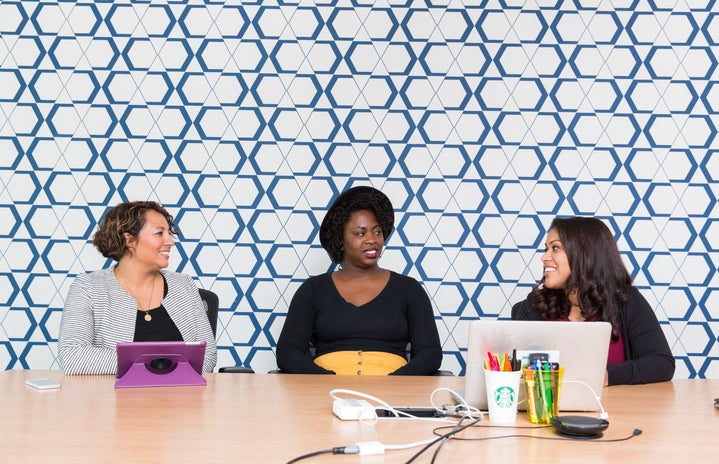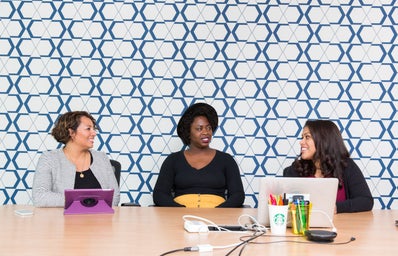My title isn’t serious. I mean, it is true that the second you do speak, you are being oppressed; but you should definitely still speak. It’s not that you have a silly voice or anything, I’m sure it’s lovely, but rather, I did a reading recently for a class (as I don’t have time to do readings outside of course material) that described different communication patterns in men and women. And these communication patterns, my dear, are somewhat oppressive—to say the least.
This reading was Kristina Minister’s “A Feminist Frame for the Oral History Interview” (1991). Straight off the bat here, let me say that I don’t agree with everything Minister says, and she definitely speaks in very extreme terms with little room for a gray area. However, she does bring up extremely interesting points about the differences in how men and women communicate.
To arrive at her conclusions, Minister studied a group of women in communication. She argues that women develop their patterns of dialogue to become closer to other women. As such, women use more intimate, encouraging and supportive gestures. That is, women give supportive oral cues, such as “mm” to indicate to the speaker that they are actively listening and to lend their support. Women also tend to sit in positions where they can see everybody and they interrupt more frequently: to lend support, not to take over the conversation. Minister calls this “intersupport”. Women also tell jokes, but not jokes that necessarily have a punch line. Their jokes tend to be more a tool for sharing, rather than for asserting humourous qualities.
In contrast, men develop their communication patterns to assert dominance. That’s why female interruptions are seen as an attack on the turns of speakers, which they take much more seriously. To dominate the conversation, one must control who speaks when, and what they say. Men are said then to control, especially in interviews, questions and responses much more strictly. Interestingly, though not surprisingly, it is this form of communication that has been adopted in the professional world. Minister, in her article, is arguing that we should drop the patriarchal speech in interview settings, and instead allow for a more flowing, familiar, and natural conversation to form between speakers. She says that this can only be done by having female interviewers alone, which is extreme as there are plenty of very soft spoken and supportive men and also plenty of very dominant Type A women, but this was written in the 90s.
This was interesting to me because I started noticing these dichotomies in my daily interactions. It’s difficult because it might seem as though, I will never be able to overcome oppression as a woman. My “female” speaking patterns are pretty innate by now. Am I destined to be seen as less professional, less strong and dominant than my male counterparts simply because of the way I speak? If emotions and familiarity are meant only for unprofessional settings, then how will I succeed in the corporate world? Do I have to compromise my authentic tone for something more masculine and just “fake it until I make it” simply to succeed?
Maybe, as Minister argues, this femininity is just what we need. Would Greta Thunberg have been as successful if she were a man? Maybe her emotional pleas, her ability to talk about herself in a familiar way (“You have stolen my dreams and my childhood,” “No matter how sad or angry i am,” “We wil never forgive you” in her UN Climate Action Summit Speech) is what resonated in so many people. This is in contrast to all the (unemotional) scientific data and numbers which alone failed to move people. Christine Lagarde, as I wrote in my last article, also exemplifies this call for femininity. That is, though she isn’t a very proficient economist, she has become the head of the International Monetary Fund (IMF) because of her diplomatic skills: because of her specific (female) communication patterns!
All this is to say, men and women speak differently. The female way has historically been dismissed. However, we should not change. We should maximize the potential of our communication patterns. People need support, engagement, emotion! Finally, it’s important that we be aware of these things so as not to let ourselves be put down by them. Therefore, get out there and contrary to what my clickbait title says, talk to people! Listen to how you speak, how others speak! Maximize your potential!
Images obtained from:
https://www.newsweek.com/7-iconic-sex-and-city-new-york-locations-hbo-963136
https://www.latimes.com/environment/story/2019-09-23/greta-thunberg-un-climate-summit-global-warming


